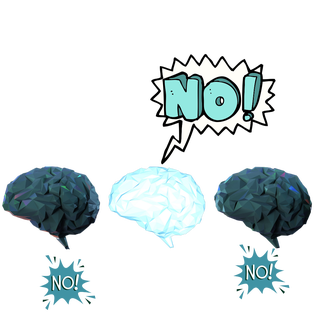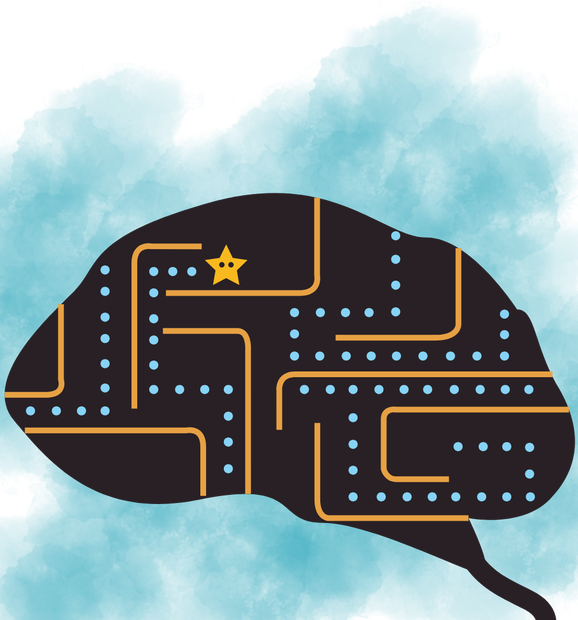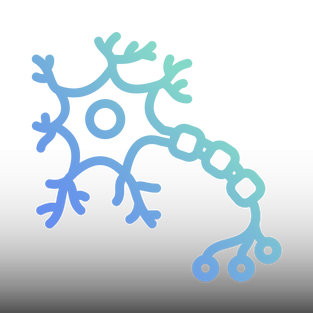
The ability to exercise self-control and resist temptation is a crucial skill that affects many aspects of our lives. But have you ever wondered what happens in your brain when you practice self-control? This blog explores the neuroscience behind it, including the role of the prefrontal cortex, the influence of neurotransmitters like dopamine, and the concept of neuroplasticity - the brain's ability to change and adapt. Additionally, we'll provide practical techniques to strengthen your self-control and improve your ability to resist temptation.
The Prefrontal Cortex: The Decision-Maker Behind Self-Control
The prefrontal cortex (PFC), the brain's command center situated behind the forehead, is central to self-control. This brain region governs higher-order cognitive functions like planning, reasoning, and decision-making. When you resist temptation, such as maintaining focus on work or managing emotional reactions, the prefrontal cortex plays a key role. It allows you to evaluate potential outcomes, weigh pros and cons, and make logical choices that support your long-term objectives.
The prefrontal cortex (PFC) is crucial in regulating emotions and impulsive behaviors. When faced with a decision, the brain weighs potential rewards and punishments. The PFC allows us to override the urge for instant gratification and make rational choices. However, under conditions of stress, fatigue, or when the PFC is underactive or overwhelmed, our self-control weakens and can lead to poor decision-making.
The Role of Dopamine and Neurotransmitters in Self-Control
Dopamine, a neurotransmitter frequently referred to as the "feel-good" chemical, plays a crucial role in decision-making and self-control. It is released when we experience something pleasurable or rewarding, thus reinforcing our desire to continue seeking out those behaviors and creating a cycle of motivation.
However, dopamine's role in self-control is complex. While the anticipation of a reward can motivate us to stay on track and achieve our goals, giving in to temptation can also result in a dopamine rush. This immediate pleasure reinforces the undesirable behavior, making it more difficult to resist in the future.
The brain's reward system is less stimulated by dopamine when we resist temptation and choose rationally, making future resistance more challenging. Yet, self-discipline becomes easier with practice, as our brain learns to associate rewards with long-term gratification.

Willpower: The Depletion Theory and New Insights
Turns out, for a long time, scientists thought willpower was like a tank of gas. The idea was that you only had so much of it, and using it up all day meant you'd be running on fumes by evening. Basically, the more you resisted things, the less oomph you'd have left.
New research has challenged the traditional belief that willpower is a finite resource that gets depleted with use. Although self-control can be harder when we're tired, it is now believed that our mindset about willpower plays a major role. Studies have shown that people who believe willpower is abundant are better at maintaining self-control, even when they've been exerting it for a long time.
This shift in understanding suggests that our mental attitudes toward self-control can influence how successful we are at exercising it. Rather than seeing self-control as something that depletes, we can choose to view it as a muscle that strengthens with practice.

Neuroplasticity: Strengthening Your Self-Control “Muscles”
The brain's ability to reorganize itself by forming new neural connections, referred to as neuroplasticity, allows self-control to be strengthened over time. Similar to exercising muscles, consistent practice with self-control strengthens the associated neural pathways, making discipline easier in the future.
In practical terms, this means that each time you choose to delay gratification or make a wise decision, you're reinforcing the neural circuits involved in self-control. Over time, your brain becomes better at resisting temptation and maintaining focus, and self-control becomes more automatic.
Practical Techniques for Strengthening Self-Control
While the brain’s structure and chemistry play a significant role in self-control, there are several practical techniques you can use to improve your ability to resist temptation and make thoughtful decisions.
- Mindfulness: Practicing mindfulness allows you to become more aware of your thoughts and feelings in the moment. This awareness can help you recognize when you're being triggered by emotions or impulses, giving you the space to make a more rational decision.
- Deep Breathing: When emotions run high, deep breathing can activate the parasympathetic nervous system, which calms the body and mind. Taking a few slow, deep breaths can help you regain control over your impulses.
- Focus on Long-Term Rewards: Instead of focusing on immediate gratification, remind yourself of the long-term benefits of making the right decision. Visualizing your goals and how self-control will help you achieve them can motivate you to stay on track.
- Practice Small Wins: Building self-control is like building muscle. Start with small, manageable challenges where you practice saying "no" or delaying gratification. Over time, you’ll build confidence and strengthen your self-control.
Reframe Your Beliefs About Willpower: Instead of seeing willpower as a limited resource, try to adopt the mindset that self-control is something that can grow and improve with practice. This shift in belief can help you approach challenges with a sense of empowerment rather than limitation.
The prefrontal cortex and neurotransmitters like dopamine play a part in the complex process of self-control, which is also impacted by neuroplasticity. A better understanding of the science behind self-control helps us appreciate what it takes to resist temptation and make thoughtful choices. We can build lasting behavioral changes and strengthen our self-control with consistent practice and proper techniques.
If you’re ready to build your self-control and strengthen your decision-making, download our free "Brain Training Workbook" to start practicing today. With the right tools, you can improve your self-discipline and unlock your full potential.


Add comment
Comments